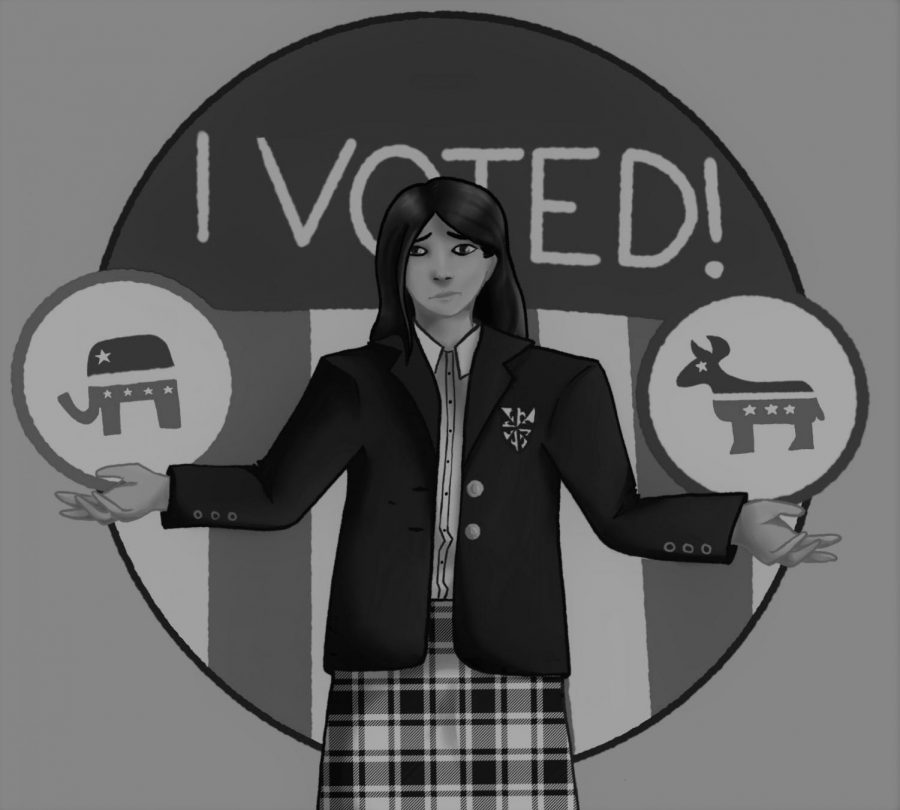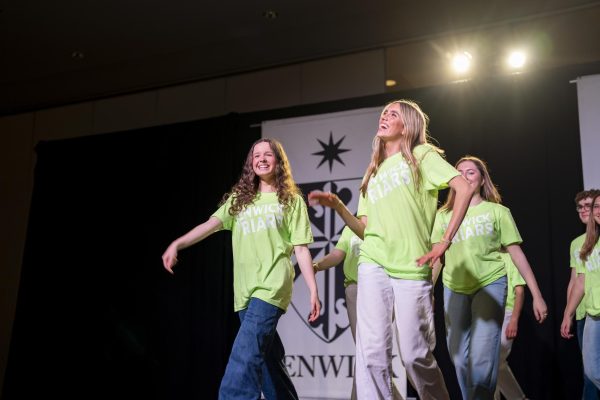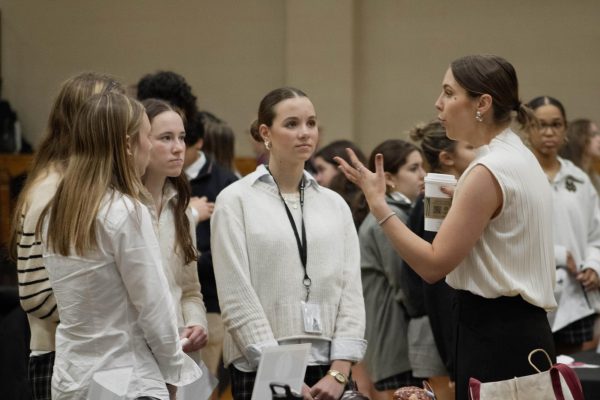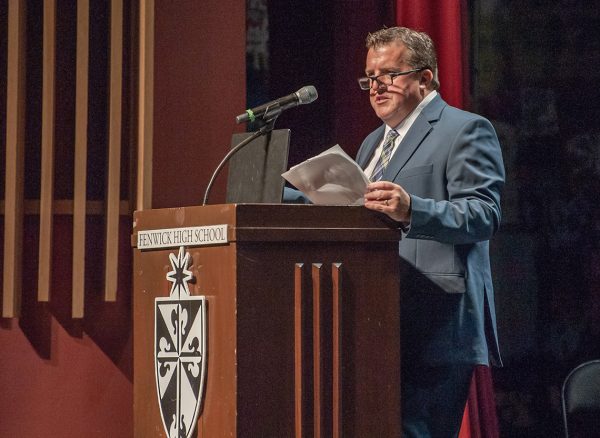An Impossible Decision: First-Time Voters Face a Difficult Choice in the 2020 Election
In a normal political climate, voting can be overwhelming and difficult to understand for first-time voters, especially those who are in high school. However, in 2020, between a global pandemic, an increase in mail-in voting, and an intense partisan divide, voting has become significantly more confusing, yet even more important. This leads to the one pressing question: how do we decide which candidate to vote for? Though it can be a long process, there are ways to figure out which candidate best represents what one believes in. Fenwick students have many capable teachers who can help them navigate this process.
The most important part of deciding who to vote for is becoming informed. In today’s media, most of the news is biased or untrue, which makes educating ourselves so much harder. AP Government teacher Ms. Logas recommends consulting a balance of news sources. “Unfortunately, it’s a lot of work” she explained, “…but that is the most effective way.” She also recommended public sources such as PBS and the Wall Street Journal for clear and unbiased facts. Mr. Wieckiewicz agreed with her: “the most important thing to do is NOT just stay in your bubble of personal beliefs and interests. If you spend all of your time calling the other side “fake news,” then will you really ever know why you disagree with them?” He also emphasized the importance of looking deeper into an author or source that seems suspicious.
Even when young voters take the time to educate themselves, filling out a ballot can still be a daunting task. Mr. Holmberg recommends using websites such as usa.gov and vote.com for information on how to register and fill out a ballot. “First-time voters should see what issues are being voted on, and what local elections mean to them and their families,” he explained. “I would tell them to make sure they are informed about the voting process, and informed about the candidates” he explained. Mr. Wieckiewicz’s tip was to pull out your phone in the voting booth and look up any candidate that you’ve never heard of before. “It is important to fill out your entire ballot and not just randomly!”
So, what can high school students do if they’re not yet eligible to vote? “Go to your meetings of local government, pay attention and stay informed about the issues and candidates, and, most importantly, “MAKE SURE THE PEOPLE WHO CAN VOTE AROUND YOU ARE GOING TO VOTE COME ELECTION DAY!” Mr. Wieckiewicz emphasized. Mr. Holmberg also recommends students over 17 years of age volunteer to be poll workers, an increasingly critical job because most poll workers are seniors who cannot volunteer in a pandemic. Whatever students choose to do, the most important thing is to get involved and stay informed for when their time comes to vote.







